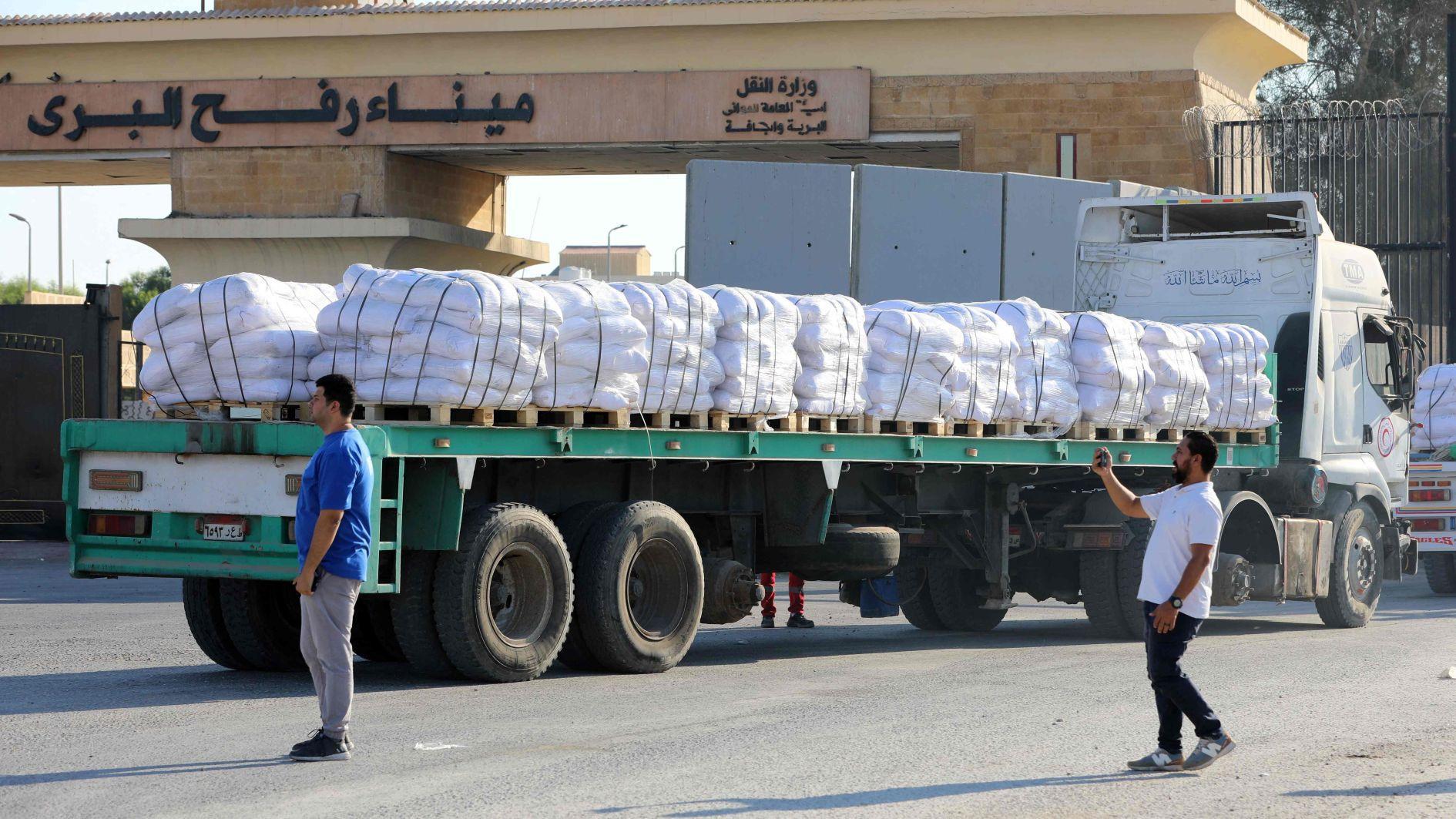
The Israeli military on July 27 began a limited pause in fighting in three populated areas of Gaza for 10 hours a day, part of a series of steps launched as concerns over surging hunger in the territory mount.
The military said it would begin a “tactical pause” in Gaza City, Deir al-Balah and Muwasi, three areas of the territory with large populations, to “increase the scale of humanitarian aid” entering the territory.
The pause begins every day at 10:00 a.m. to 8:00 p.m. local time until further notice, starting July 27.
The military also said that it would put in place secure routes for aid delivery and that it carried out aid airdrops into Gaza, which included packages of aid with flour, sugar and canned food.
Humanitarian chiefs are deeply sceptical that airdrops can deliver enough food safely to tackle the hunger crisis facing Gaza's more than 2 million inhabitants.
The United Nations' aid chief welcomed Israel's announcement of secure land routes into Gaza for humanitarian convoys, saying that the U.N. would try to reach as many starving people as possible.
Food experts have warned for months of the risk of famine in Gaza, where Israel has restricted aid because it says Hamas siphons off goods to help bolster its rule, without providing evidence for that claim.
Images emerging from Gaza in recent days of emaciated children have fanned global criticism of Israel, including by close allies, who have called for an end to the war and the humanitarian catastrophe it has spawned.
Israel said the new measures were taking place while it continues its offensive against Hamas in other areas.
The Oxfam aid agency's regional policy chief, Bushra Khalidi, described the Israeli decision as a "welcome first step" but warned it could yet prove insufficient to resolve the crisis.
"Starvation won't be solved by a few trucks or airdrops. What's needed is a real humanitarian response: ceasefire, full access, all crossings open, and a steady, large-scale flow of aid into Gaza," she told AFP.
Ahead of the pause, health officials in Gaza said at least 27 Palestinians were killed in separate strikes.
“This [humanitarian] truce will mean nothing if it doesn’t turn into a real opportunity to save lives,” said Dr. Muneer al-Boursh, director general of Gaza's Health Ministry, who called for a flood of medical supplies and other goods to help treat child malnutrition. “Every delay is measured by another funeral.”
The local pause in fighting came days after ceasefire efforts between Israel and Hamas appeared to be in doubt. On July 25, Israel and the U.S. recalled their negotiating teams, blaming Hamas, and Israel said it was considering “alternative options” to ceasefire talks with the militant group.